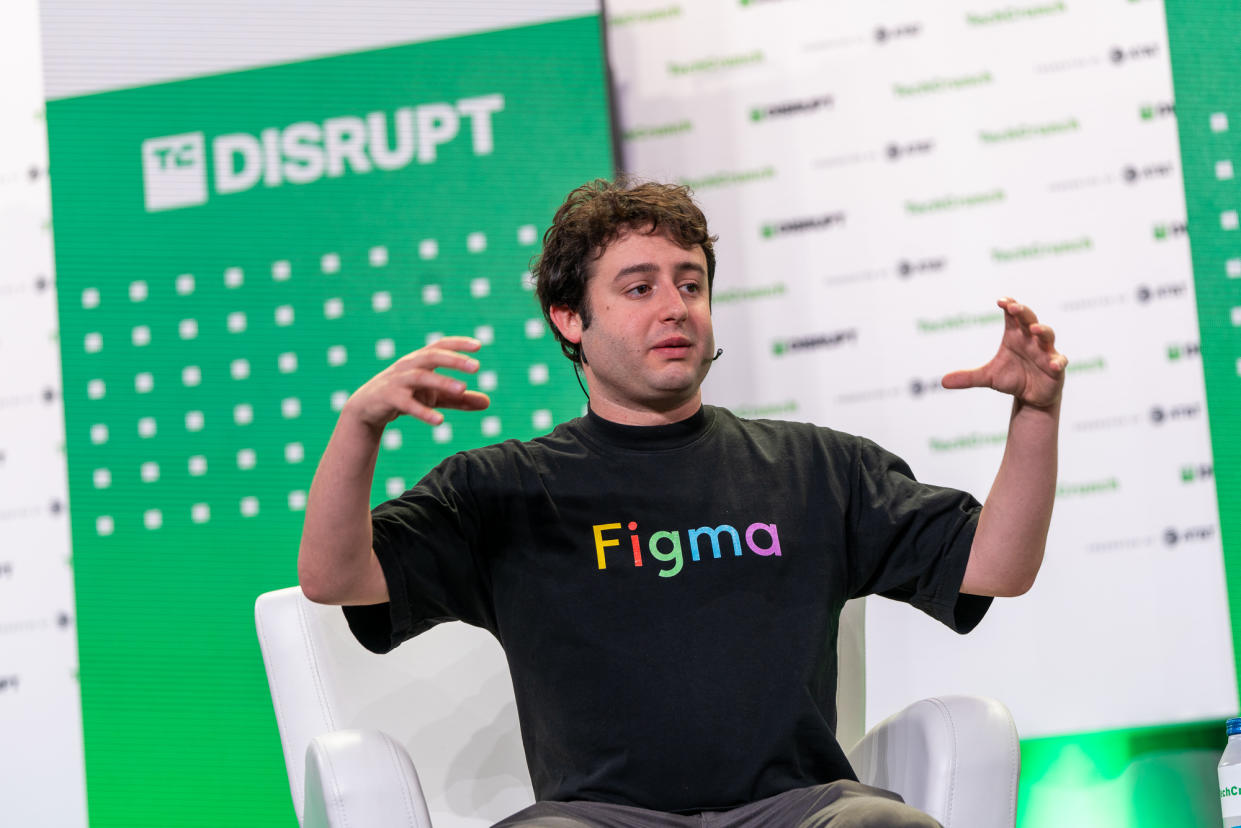Figma CEO Dylan Field on why he sold to Adobe

A month after Adobe announced its plans for acquiring Figma, the popular digital design startup, Figma CEO and co-founder Dylan Field sat down with our own enterprise reporter Ron Miller at Disrupt 2022 to discuss the deal and his motivations for selling to Adobe, a company that Figma's own marketing materials have not always described in the most glowing of terms.
"We were having a blast -- we are having a blast -- but then we started talking with Adobe and Adobe is a foundational, really impressive company and the more I'd spend time with the people there, the more trust we built, the more that I could see: 'Okay, wow. We're in this like product development box right now,'" Dylan said, surely making his media trainers happy with his non-answer. He noted that Figma today offers tools for ideation and designing mockups, with plans for launching additional tools for more easily taking those mockups and turning them into code.
"I started to form a thesis of 'creativity is the new productivity' and we don't have the resources to just go do that right now at Figma," Dylan noted, giving the standard answer that 99% of founders tend to give when they sell to a bigger rival. "If we want to go and make it so that we're able to go into all these more productivity areas, that's gonna take a lot of time. "To be able to go and do that in the context of Adobe, I think gives us a huge leg up and I'm really excited about that."
Surely, the fact that this deal -- assuming it closes -- will also create generational wealth for Field was a bit of a motivator, but for some reason, founders always deny this.
Asked about any potential pressure from investors, Field denied that this played any role in the sale -- especially because Figma continues to double its revenue year over year.
"That was never the consideration here," Field said "It was: what's the best opportunity to achieve our vision? The vision for the company is make design accessible to everyone. So design -- is not just interface design. It's creativity. It's productivity. It's you know making it so that we can all be part of the digital revolution that's happening. The entire world's economy is going from physical to digital right now. Are we going to leave a bunch of people behind or going to give everyone the tools. I feel a lot of pressure and I think it's really important that we give all of these people these tools really fast."
The Figma PR team surely had a smile on its face after this answer.
I don't think that's necessarily how Adobe feels about its $82.49/month Creative Cloud subscription package that surely not everybody can afford, but Field stressed multiple times that Figma will remain an independent company and that there are no plans for changing the company's pricing plan. Adobe is paying $20 billion for Figma, though, so let's see if that changes over time.
"What Adobe's told us is that they want to learn from Figma," he said. "And I think in general, they're going 'okay how do you go to more of a freemium model? How do you make it so that you're able to really be bottoms up?" Adobe isn't paying all of that money for education, though. A Coursera marketing course is a lot cheaper than $20 billion, after all. Over time, the company has a responsibility to its shareholders to increase its revenue, so we'll see how that plays out -- always assuming the deal closes. That's not a given in this current regulatory environment.
Field, for what it's worth, thinks this is a very offensive move by Adobe, whose XD Figma rival never quite caught on with designers.
"They're trying to figure out: how do you make it so that you're able to adapt the products they already have, but also to sort of bolster this new platform. And yeah, I don't think that's risk-averse in any way."

 Yahoo Movies
Yahoo Movies 
